Pass Your Test Easy!
Test Questions & Answers, Accurate & Verified By IT Experts
Instant Download, Free Fast Updates, 99.6% Pass Rate.

Test of Essential Academic Skills: Reading Comprehension, Sentence Correction, Math Problem Solving, Sentence Completion
Includes 492 Questions & Answers
$69.99
Download Free TEAS Practice Test Questions VCE Files
| Exam | Title | Files |
|---|---|---|
Exam TEAS Test |
Title Test of Essential Academic Skills: Reading Comprehension, Sentence Correction, Math Problem Solving, Sentence Completion |
Files 7 |
Test Prep TEAS Certification Exam Dumps & Practice Test Questions
Prepare with top-notch Test Prep TEAS certification practice test questions and answers, vce exam dumps, study guide, video training course from ExamCollection. All Test Prep TEAS certification exam dumps & practice test questions and answers are uploaded by users who have passed the exam themselves and formatted them into vce file format.
Ultimate TEAS Exam Preparation: Study Guide, Tips & Success Strategies
Dreaming of a nursing career can be an exciting and life-changing decision. Nursing is a profession that combines science, compassion, and critical thinking, offering the opportunity to make a real difference in the lives of patients and their families. Before you step into this rewarding field and put on your scrubs, one of the first academic challenges you are likely to face is the Test of Essential Academic Skills, commonly known as the TEAS exam. This exam is a key requirement for many nursing schools across the United States, as it evaluates whether you have the foundational academic knowledge needed to succeed in nursing programs. For students interested in pursuing nursing at newly established programs, passing this exam is an important milestone in the admissions process and a reflection of your preparedness for the rigorous coursework ahead.
Many prospective nursing students feel anxious about taking standardized entrance exams, especially if they have been out of school for a few years or struggled with test anxiety in the past. However, the TEAS exam is designed to be manageable for students who prepare strategically and take the time to understand the structure of the test. A strong score can boost your application, making you a more competitive candidate for admission. It also demonstrates your competence in critical subject areas such as science, mathematics, and reading comprehension, which are all essential for delivering safe and effective patient care. When you approach this exam with a clear plan and a positive mindset, it can become a stepping stone rather than an obstacle on your path to becoming a nurse.
Nursing schools use TEAS scores not only to determine eligibility for admission but also as a way to predict student success in demanding nursing curricula. Students who do well on the TEAS are more likely to keep up with the pace of lectures, labs, and clinical rotations, and to successfully pass licensing exams such as the NCLEX later in their journey. Because nursing is a profession that requires strong problem-solving abilities and sound judgment, schools want to ensure that incoming students possess the core academic skills that will support their growth as future healthcare providers.
Understanding the purpose of the TEAS exam can also help reduce stress. It is not meant to trick you or exclude qualified applicants but rather to ensure that you have the baseline knowledge needed to thrive in nursing school. By taking the time to prepare thoroughly, you are setting yourself up for long-term success in your education and future career. Think of this exam as a chance to review and strengthen your understanding of fundamental concepts before you take on more advanced material in anatomy, physiology, pharmacology, and clinical nursing courses.
Understanding the TEAS Exam
The TEAS exam is created and administered by the Assessment Technologies Institute, an organization that specializes in academic readiness assessments for healthcare education. The test is carefully designed to measure your skills in four primary areas: reading, mathematics, science, and English language usage. These areas are selected because they closely mirror the types of cognitive tasks you will encounter in nursing school and during real-world patient care.
The test includes 170 questions, of which 150 are scored and 20 are unscored pretest questions. These pretest questions are being evaluated for use on future exams and do not affect your score, but you will not know which ones they are while taking the test. The entire exam typically lasts 209 minutes, which is just under three and a half hours. The format includes multiple-choice questions, multiple-select items where you must choose more than one correct answer, fill-in-the-blank questions, ordered response questions where you must put steps in the correct order, and hot-spot questions that require selecting a specific area on an image.
The reading section evaluates your ability to comprehend written passages, determine the main idea, identify supporting details, and make logical inferences. Strong reading skills are essential in nursing because you will need to interpret physician orders, patient charts, and research articles accurately and efficiently.
The mathematics section measures your proficiency with algebra, numbers, measurement, and data interpretation. Nurses frequently calculate medication dosages, IV drip rates, and intake and output measurements, so comfort with numbers is a vital part of safe clinical practice.
The science section is considered by many students to be the most challenging portion because it covers a wide range of topics including anatomy, physiology, chemistry, biology, and the scientific method. These topics form the backbone of nursing knowledge, and having a solid grasp of them is crucial before you begin your nursing coursework.
Finally, the English and language usage section tests grammar, punctuation, sentence structure, and vocabulary. Clear and precise communication is a core competency for nurses, who must document patient care accurately and convey information to other members of the healthcare team.
Why the TEAS Exam Matters
Understanding why the TEAS exam matters can give you greater motivation to study effectively. Nursing programs are academically intensive, and faculty members need to know that their students can handle the demands of coursework and clinical rotations. By requiring the TEAS exam, schools can identify students who have the baseline skills to succeed and who are more likely to graduate and pass the licensing exam on the first attempt.
A strong performance on the TEAS can also give you an edge over other applicants, especially if the nursing program you are applying to is competitive. Admissions committees often look for well-rounded candidates, and a high TEAS score signals that you are academically prepared and ready to meet the challenges of nursing school. This is particularly important if other aspects of your application, such as your GPA, are not as strong as you would like them to be.
Furthermore, preparing for the TEAS exam can serve as an academic refresher, especially if it has been several years since you took science or math courses. Many students find that reviewing these subjects before starting their nursing program helps them transition more smoothly into college-level coursework. It also allows you to identify areas of weakness early so you can seek additional support if needed.
Common Challenges Students Face
One of the most common challenges students face when preparing for the TEAS exam is time management. Balancing study time with work, family, and other responsibilities can be difficult, particularly for adult learners returning to school. Another challenge is test anxiety, which can affect performance even when you have studied thoroughly. Understanding the format of the exam and taking practice tests under timed conditions can help reduce this anxiety and improve your confidence on test day.
Content gaps are another obstacle. Some students may struggle more with math, while others may find science concepts difficult to master. The key is to create a personalized study plan that focuses more time on your weaker areas while still reviewing your strengths to maintain balance.
Finally, procrastination can derail even the most well-intentioned students. It is easy to put off studying until the last minute, but cramming is rarely effective for an exam that covers multiple subject areas. Consistent, spaced-out study sessions are far more effective for retaining information and building long-term understanding.
Building a Strong TEAS Study Plan
Building a strong TEAS study plan is one of the most important steps you can take to set yourself up for success. Preparing for the TEAS exam is not something that can be done overnight. The exam covers a wide range of subjects, and to perform well, you need to allow yourself enough time to review each section thoroughly. A good study plan begins with an honest assessment of where you currently stand. Start by taking a practice exam under timed conditions to identify your strengths and weaknesses. The results will help you understand which sections require more attention and which areas you are already comfortable with. Once you know where you need improvement, you can create a schedule that allocates more time to the topics that challenge you most. Consistency is critical when preparing for the TEAS exam. Instead of cramming all your study time into one or two long sessions, try to spread your preparation out over several weeks or even months. This approach allows you to build knowledge gradually and gives your brain time to process and retain information. Daily or near-daily study sessions of one to two hours are usually more effective than marathon weekend sessions. The goal is to develop a steady rhythm that keeps the material fresh in your mind while preventing burnout.
Another key element of a strong study plan is setting realistic goals and tracking your progress. Break down your study plan into smaller, manageable steps such as reviewing a single topic, completing a set of practice questions, or mastering a particular math concept. Checking off each step gives you a sense of accomplishment and keeps you motivated. Use a calendar or planner to schedule your study sessions and treat them like important appointments that cannot be missed. Accountability is crucial, and sticking to a routine will help ensure you cover all the necessary material before test day.
Finally, make sure to create an environment that is conducive to focused study. Find a quiet space with minimal distractions, turn off notifications on your phone or computer, and gather all the materials you will need before you start. Having a dedicated study space signals to your brain that it is time to concentrate, making your study sessions more productive.
Using High-Quality Study Resources
The quality of your study resources can make a significant difference in your TEAS exam performance. Not all preparation materials are created equal, and using outdated or poorly designed resources can waste valuable study time. Start by using official practice materials from the exam creator when possible. These materials closely mirror the format and style of the actual TEAS exam, which helps you become familiar with how questions will be asked. Becoming comfortable with the test format reduces anxiety and allows you to focus on demonstrating your knowledge rather than figuring out how to interpret questions.
In addition to official materials, consider using comprehensive study guides and review books that are specifically designed for the TEAS exam. These guides typically include detailed explanations of key concepts, sample questions, and strategies for approaching each section. Some guides also provide full-length practice exams that can be taken under timed conditions to simulate the real test experience.
Digital resources can also play an important role in your preparation. Many online platforms offer practice questions, flashcards, and video tutorials that can reinforce your understanding of difficult topics. Interactive tools such as quizzes and progress trackers can help keep you engaged and motivated throughout the study process. If you are a visual learner, video lessons can be especially helpful for breaking down complex concepts into easy-to-understand explanations.
Libraries and community learning centers are another valuable resource. Many libraries offer TEAS prep books for free, allowing you to access multiple study guides without having to purchase them. Some even host study groups or workshops where you can collaborate with other students who are also preparing for the exam.
Practicing with Purpose
Practice is one of the most powerful tools for improving your TEAS score, but not all practice is equally effective. Practicing with purpose means focusing on quality over quantity. Simply completing large numbers of questions without analyzing your mistakes will not help you improve. Instead, take time to review every question you answer, especially the ones you get wrong. Understanding why you missed a question is key to preventing the same mistake on test day.
Timed practice is particularly important for the TEAS exam because it helps you develop pacing strategies. The test is lengthy, and running out of time can prevent you from answering questions you know. By practicing under timed conditions, you train yourself to work efficiently and manage your time wisely. Pay attention to how long you spend on each question and develop strategies for moving on when you get stuck. It is better to skip a question and come back to it later than to spend too much time on a single problem and risk leaving other questions unanswered.
Another effective practice technique is spaced repetition. This method involves reviewing material at increasing intervals over time, which has been shown to improve long-term retention. For example, you might review a concept today, revisit it in two days, then in a week, and again two weeks later. Each time you revisit the material, your brain strengthens the memory, making it easier to recall on test day.
Consider mixing up the order of the subjects you practice to keep your brain engaged and avoid monotony. If you always study reading first, then math, then science, your brain may start to lose focus during the later subjects. Changing the order occasionally can help keep you alert and make your study sessions more effective.
Developing Test-Taking Strategies
In addition to mastering the content, developing strong test-taking strategies can significantly boost your TEAS performance. Knowing how to approach different types of questions and manage your time effectively can make a difference even when you are unsure of an answer.
One helpful strategy is process of elimination. If you are unsure about a question, try to eliminate as many incorrect answer choices as possible before making your selection. Even if you cannot determine the correct answer with complete certainty, narrowing down your choices increases your chances of guessing correctly.
Another strategy is to answer the easier questions first and then return to the more difficult ones. This ensures that you earn as many points as possible on the questions you know while leaving more time to think about the challenging ones. Mark difficult questions and move on, coming back to them after you have completed the rest of the section.
Be aware of common traps such as absolute words like always or never in answer choices, which are often incorrect. Read each question carefully to make sure you understand exactly what is being asked before answering. If a question involves a passage or data set, read the question first so you know what information to look for as you read.
Managing stress during the exam is another important strategy. Deep breathing exercises, positive self-talk, and visualization techniques can help keep anxiety under control. Remember that feeling nervous is normal, and a moderate level of stress can even enhance focus and performance.
Staying Consistent and Motivated
Consistency is the key to long-term success in TEAS preparation. It can be easy to start off motivated and then lose steam after a few weeks, especially if you are balancing work, school, and family commitments. Staying motivated requires setting clear goals, reminding yourself of why you are pursuing a nursing career, and celebrating small victories along the way.
One effective way to stay on track is to create a study routine and stick to it. Having a set time and place for studying each day helps build a habit and reduces the mental effort required to get started. Over time, your brain associates that time and place with focused learning, making it easier to concentrate.
Tracking your progress can also keep motivation high. Keep a record of your practice test scores and watch how they improve over time. Even small gains can be encouraging and remind you that your efforts are paying off.
Surround yourself with supportive people who understand your goals and can help keep you accountable. Study partners, mentors, and supportive family members can provide encouragement and remind you to stay focused when you feel discouraged.
Finally, take care of your physical and mental health throughout your preparation period. Eating nutritious meals, getting enough sleep, and incorporating regular exercise into your routine will keep your mind sharp and your energy levels steady. A healthy body supports a healthy mind, which is essential for peak performance on test day.
Mastering the Reading Section
The reading section of the TEAS exam is one of the most crucial parts of the test because it measures your ability to comprehend information quickly and accurately. Strong reading skills are essential for success in nursing school where you will be required to read patient charts, research studies, and clinical guidelines on a regular basis. The reading section typically contains passages of varying lengths followed by multiple-choice questions that assess your ability to identify main ideas, supporting details, inferences, and the author’s purpose. One of the best ways to prepare for this section is to practice active reading techniques. Active reading means engaging with the text instead of passively scanning it. As you read a passage, ask yourself questions about what the author is saying and why they are saying it. Look for signal words such as however, therefore, and in contrast because these words often indicate shifts in meaning or important relationships between ideas. Practice summarizing each paragraph in your own words as you go along, which will help you retain key points and make it easier to answer questions later. Time management is critical in the reading section because it is easy to spend too much time on one passage and run out of time for others. When you practice, set a timer and get used to reading passages under timed conditions. Train yourself to read efficiently by focusing on the most important parts of the passage, such as the introduction, topic sentences, and conclusion. Avoid rereading entire paragraphs unless absolutely necessary, as this can waste valuable time. Another helpful strategy is to read the questions before reading the passage. This allows you to know what to look for and focus your attention on relevant details rather than getting distracted by less important information. Vocabulary knowledge also plays an important role in this section. Strengthening your vocabulary will help you understand the meaning of unfamiliar words in context, which is a common type of question on the TEAS exam. To improve your vocabulary, make a habit of reading a variety of materials such as articles, essays, and scientific texts. Keep a journal of unfamiliar words and review them regularly. Learning prefixes, suffixes, and root words can also help you decode unfamiliar terms during the exam.
Excelling in the Mathematics Section
The mathematics section of the TEAS exam measures your ability to work with numbers accurately and efficiently, which is a critical skill for nursing practice. You will encounter questions involving arithmetic, algebra, measurements, and data interpretation. Because nurses are responsible for calculating medication dosages and IV rates, even small errors can have serious consequences, so precision is essential. One of the first steps in preparing for the math section is to refresh your knowledge of basic arithmetic operations, fractions, decimals, and percentages. Make sure you are comfortable performing these calculations without relying on a calculator, as only a basic calculator will be provided during the test. Practice converting between fractions, decimals, and percentages until you can do so quickly and accurately. Algebra is another key area tested on the TEAS. You may be asked to solve for variables, work with ratios and proportions, and interpret simple equations. If algebra is a weak area for you, spend extra time reviewing topics such as solving linear equations, simplifying expressions, and understanding inequalities. Use practice problems to reinforce these skills and build confidence. Measurement questions may involve converting units within and between measurement systems. For example, you might need to convert ounces to milliliters or inches to centimeters. Memorizing common conversion factors will save you time on the exam and reduce the risk of errors. Data interpretation questions require you to read graphs, tables, and charts to extract relevant information. Practice analyzing data sets and answering questions about trends, averages, and comparisons. Timed practice is again very important in the math section. Work through problems under timed conditions to develop a sense of pacing and learn when to move on from a problem that is taking too long. If you encounter a difficult question, make an educated guess and mark it to revisit if time allows.
Succeeding in the Science Section
The science section is often considered the most challenging part of the TEAS exam because it covers a wide range of topics including anatomy, physiology, chemistry, biology, and scientific reasoning. Many students find this section intimidating, but with consistent preparation, it can become one of your strengths. Anatomy and physiology make up a significant portion of the science section, so focus on learning the major body systems and how they work together to maintain homeostasis. Understand key structures and functions of systems such as the cardiovascular, respiratory, digestive, nervous, and endocrine systems. Practice labeling diagrams and explaining how different systems interact. Biology questions may include topics such as cell structure, DNA and RNA, genetics, and evolution. Make sure you can explain basic biological processes like cellular respiration, mitosis, and meiosis. Chemistry topics may involve atomic structure, chemical bonding, the periodic table, and basic reactions. If chemistry is not fresh in your mind, spend time reviewing foundational concepts such as balancing equations and understanding pH. Scientific reasoning questions assess your ability to interpret experimental data, evaluate hypotheses, and apply the scientific method. You may be asked to identify variables, predict outcomes, or determine whether a conclusion is supported by evidence. Practice reading short experimental scenarios and analyzing the results. The key to mastering the science section is consistent review and practice. Create flashcards for key terms and processes, use diagrams to visualize systems, and take as many practice tests as possible. The more familiar you are with the material, the more confident you will feel on test day.
Strengthening English and Language Usage
The English and language usage section tests grammar, punctuation, sentence structure, and vocabulary. While it might seem less intimidating than science or math, this section is important because clear communication is essential in nursing. Misunderstandings in written or verbal communication can lead to serious errors in patient care. Grammar questions may require you to identify errors in verb tense, subject-verb agreement, or pronoun usage. Review the rules of grammar and practice identifying errors in sample sentences. Punctuation questions may involve commas, apostrophes, colons, and semicolons. Practice editing sentences to ensure they are correctly punctuated. Sentence structure questions test your ability to recognize complete sentences, fragments, and run-ons. Practice combining sentences for clarity and conciseness. Vocabulary questions may ask you to choose the best word for a given context or to identify synonyms and antonyms. As with the reading section, improving your vocabulary will help you perform better in this section.
Simulating the Test Environment
One of the best ways to prepare for the TEAS exam is to simulate the test environment as closely as possible. Taking full-length practice exams under timed conditions will help you build stamina and get used to the pressure of working against the clock. Find a quiet space where you will not be interrupted, set a timer for the exact length of the test, and complete the exam in one sitting. This will help you experience what it feels like to maintain focus for several hours. After completing a practice test, review every question carefully, even the ones you got right. Understanding why you got a question correct is just as important as understanding why you got one wrong. Look for patterns in your mistakes and focus your future study sessions on those areas. Simulating the test environment also means becoming familiar with the rules and procedures of test day. Know what identification you need to bring, what items are allowed in the testing room, and what the check-in process will be like. Reducing uncertainty about the logistics can help lower anxiety and allow you to focus on doing your best.
Developing the Right Mindset for Success
Preparing for the TEAS exam is not just about memorizing facts and practicing questions but also about cultivating the right mindset that will allow you to stay focused, positive, and resilient throughout the preparation process. Your mental approach can be the deciding factor between feeling overwhelmed and feeling in control of your journey. A successful mindset begins with believing that you are capable of achieving a strong score. Confidence is not about assuming you will get every question right but about trusting the effort you are putting into preparation. By reminding yourself that every study session is an investment in your future, you can transform anxiety into motivation. Visualization can be a powerful tool in this process. Picture yourself sitting for the exam feeling calm, focused, and ready. Imagine reading questions and recalling the information with clarity. This mental rehearsal can train your brain to associate test day with confidence rather than fear.
Another key part of mindset is adopting a growth perspective. Rather than seeing mistakes as failures, view them as opportunities to learn and improve. When you get a practice question wrong, analyze why you missed it and what concept you need to review. This approach keeps frustration from derailing your progress and turns every mistake into a step forward. Perseverance is also essential because there will inevitably be moments when you feel tired or discouraged. In those moments, remind yourself of your ultimate goal: becoming a nurse and making a difference in patients’ lives. Holding onto this bigger picture can help you push through challenges and remain consistent with your study routine.
Your mindset should also include maintaining balance. While dedication is important, it is equally critical to avoid burnout. Build breaks into your study schedule and give yourself time to recharge. Engage in activities that relax and inspire you, such as light exercise, hobbies, or spending time with loved ones. This will help you return to studying with renewed energy and focus. A healthy mindset combines determination with self-compassion, allowing you to work hard without being overly critical of yourself.
Overcoming Test Anxiety
Test anxiety is a common challenge for students taking the TEAS exam, but it does not have to control your performance. Anxiety often stems from fear of the unknown, pressure to succeed, or negative past experiences with testing. The first step to overcoming it is to normalize it. Feeling nervous before a high-stakes exam is natural and can even enhance performance by sharpening focus. The goal is not to eliminate anxiety completely but to keep it at a manageable level where it does not interfere with your ability to think clearly.
One effective strategy for reducing anxiety is to become familiar with the test format through repeated practice. The more comfortable you are with the style of questions and the timing, the less intimidating the actual exam will feel. Take multiple full-length practice tests under realistic conditions to simulate the pressure of test day. Over time, your brain will begin to associate testing with familiarity rather than fear.
Relaxation techniques can also play a significant role in calming your mind and body. Deep breathing exercises, where you inhale slowly through your nose and exhale through your mouth, can lower heart rate and reduce tension. Progressive muscle relaxation, in which you tense and then release each muscle group, can help you release physical signs of stress. Visualization, as mentioned earlier, is another powerful technique for calming the mind. Picture yourself sitting calmly at the testing station, reading each question with focus, and answering confidently.
Another way to manage anxiety is to prepare for the logistical details of test day ahead of time. Knowing where the testing center is located, how long it will take to get there, and what materials you need to bring will reduce last-minute stress. Lay out everything you will need the night before, including identification and any approved items. Arrive early to give yourself time to settle in and adjust to the environment.
Positive self-talk can also help keep anxiety at bay. Replace negative thoughts such as I am going to fail with constructive affirmations like I have prepared for this and I am ready to do my best. By actively managing your internal dialogue, you can shift your emotional state and remain composed.
Creating an Optimal Test Day Routine
Having a consistent and well-planned routine on test day can help you feel calm, organized, and ready to perform at your best. Start by getting a good night’s sleep before the exam. Aim for at least seven to eight hours so that your mind is sharp and alert. Avoid staying up late to cram, as this is likely to increase anxiety and reduce memory retention. Trust the preparation you have done and allow your brain to rest.
Eat a balanced breakfast that includes protein and complex carbohydrates to keep your energy levels stable throughout the test. Avoid heavy, greasy foods that may make you sluggish or upset your stomach. Stay hydrated but do not overdo it to the point of feeling uncomfortable during the test. Wear comfortable clothing and dress in layers so you can adjust to the temperature of the testing room.
Arrive at the test center early to allow for check-in procedures and to give yourself a few moments to relax. Use this time to practice deep breathing or repeat calming affirmations. Once the exam begins, pace yourself carefully. Keep an eye on the clock without obsessing over it and budget your time so that you have a chance to answer every question. If you find yourself stuck on a question, mark it and move on. Returning later with a fresh perspective can often lead to the right answer.
Stay focused on the present moment during the test. Do not dwell on questions you may have answered incorrectly earlier, as this can distract you from the task at hand. Instead, concentrate on one question at a time. If anxiety begins to rise, pause for a few seconds to take a deep breath and refocus.
Strategies for Maintaining Concentration
Maintaining concentration during a long exam can be challenging, especially when mental fatigue sets in. To stay focused, practice concentration techniques during your study sessions. Train yourself to work for extended periods without checking your phone or becoming distracted. The ability to concentrate deeply is like a muscle that gets stronger the more you use it.
On test day, minimize distractions by positioning yourself in a way that helps you feel comfortable and able to concentrate. Block out background noise mentally and keep your attention on the question in front of you. Use short mental breaks strategically. If you find your focus fading, close your eyes for a few seconds, take a few deep breaths, and reset your mind before continuing.
Another useful strategy is to stay mentally engaged by actively thinking about each question rather than going through the motions. Challenge yourself to explain why each wrong answer is incorrect before choosing the correct one. This keeps your brain alert and prevents careless mistakes.
Physical comfort also plays a role in concentration. Maintain good posture, as slouching can lead to fatigue. If permitted, stretch lightly during breaks to keep your blood flowing and your mind refreshed.
Final thoughts
Once you complete the TEAS exam, take time to reflect on the experience. Whether you receive your results immediately or have to wait, reviewing your performance can provide valuable insights for the future. Think about how you felt during the exam. Were there moments when anxiety spiked? Did you run out of time on any section? Were there topics you found more difficult than expected?
If you need to retake the exam, use this feedback to adjust your study plan. Focus on the sections that were most challenging and consider using new resources or study strategies to improve. Even if you passed, reflecting on the process can help you prepare for future exams such as nursing school finals or licensure tests.
Give yourself credit for completing the exam regardless of the outcome. Sitting for a high-stakes test requires courage and perseverance. Reward yourself with rest and relaxation after the test and then begin planning your next steps in your nursing journey.
ExamCollection provides the complete prep materials in vce files format which include Test Prep TEAS certification exam dumps, practice test questions and answers, video training course and study guide which help the exam candidates to pass the exams quickly. Fast updates to Test Prep TEAS certification exam dumps, practice test questions and accurate answers vce verified by industry experts are taken from the latest pool of questions.
Top Test Prep Certification Exams
Site Search:

















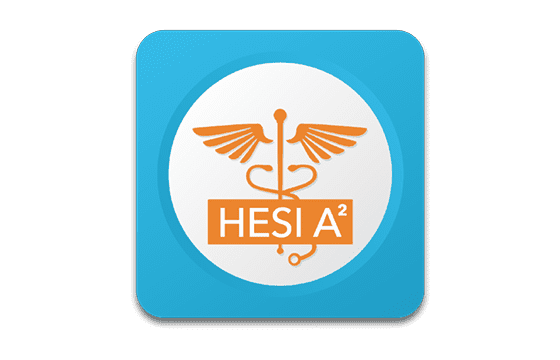




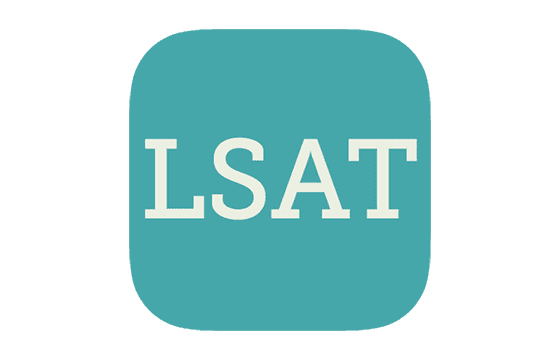





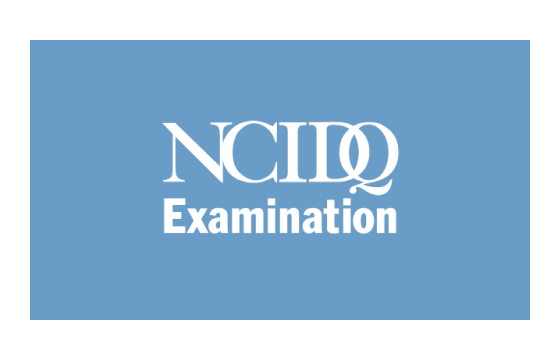



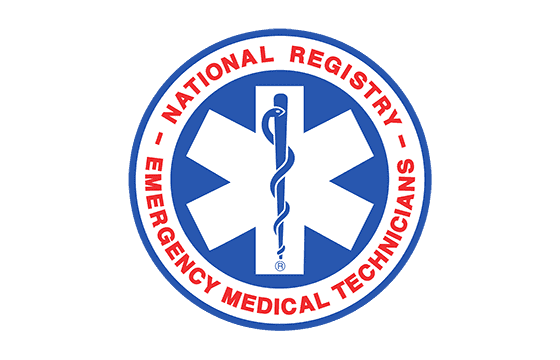

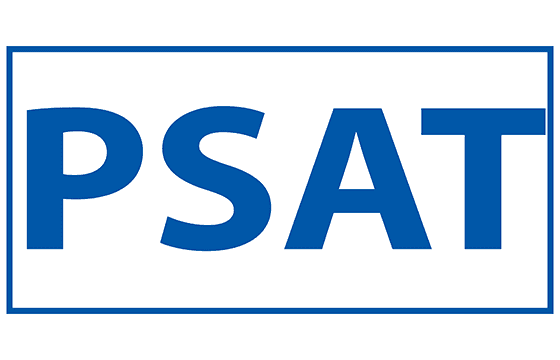
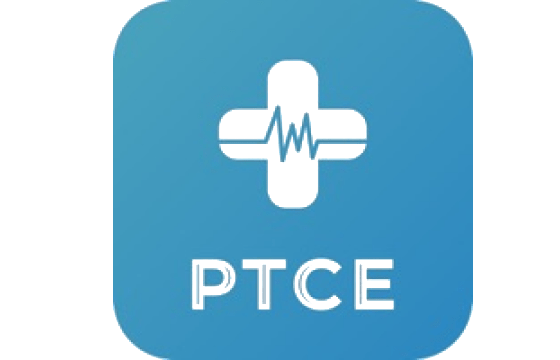


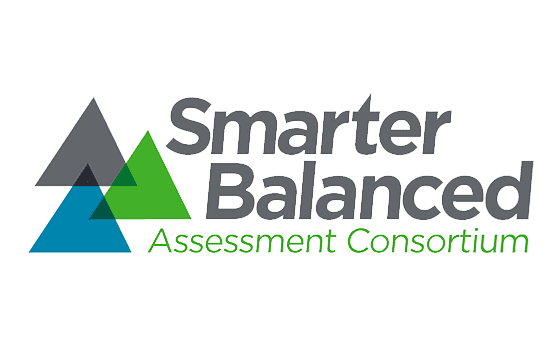





suppose someone is worried where to start because the exam is just tomorrow and has not prepared. dont worry here is the tip. take the teas practice tests plus the course training material. when you find a quiz testing on a certain concept. read everything regarding that concept and everything will be ok. i did it and it worked well for me
this is fantastice comrades, isnt it . aptitude test sample questions and answers is just a mirror of because the main exam has the same questions format and examiner's technique is also similar
plz lets upload test questions that are set based on the main course outline material. i feel some of the materials you guyz upload here are sometimes invalid
congrats to the colleague who uploaded teas 6 practice test it made me pass the exam so easily. i have come to believe that the materials that the comrades usually upload here are so valid
i have finished doing ati teas test now and all i would like to say is to attend classes and all will be well with you comrades, never mind with the rest of the concepts
hurrrahh! i have passed the exam mainly because i utilized free teas practice test the exam questions were so easy because many questions were repetion of concepts i already mastered during my prep
@harmonize, you can try using teas vce files together with the mighty vce simulator, u will be able to revise as much as possible within a very short time
can someone please upload the newly released ati teas practice test. i feel i should use it asap.
which are the most relevant teas test prep that i can use during the rush hour since the exam is already around the corner
who has taken several teas practice test to affirm its validity. i am thinking of purchasing one but i would not like to spend my money if material is invalid,
colleagues. i did teas test i now feel prepared to take exam . the test opened my mind that i have all concepts on my fingertips.